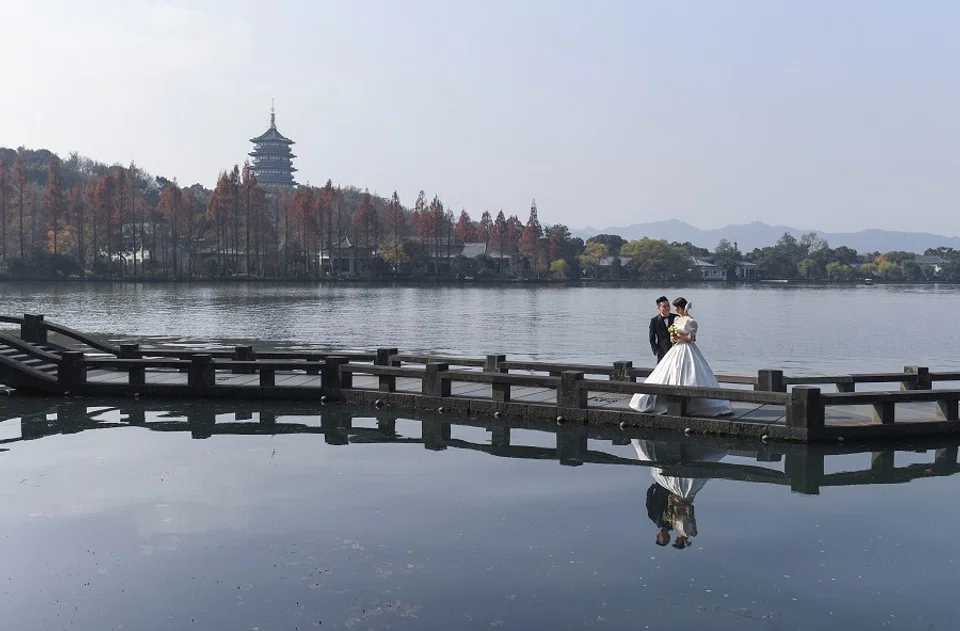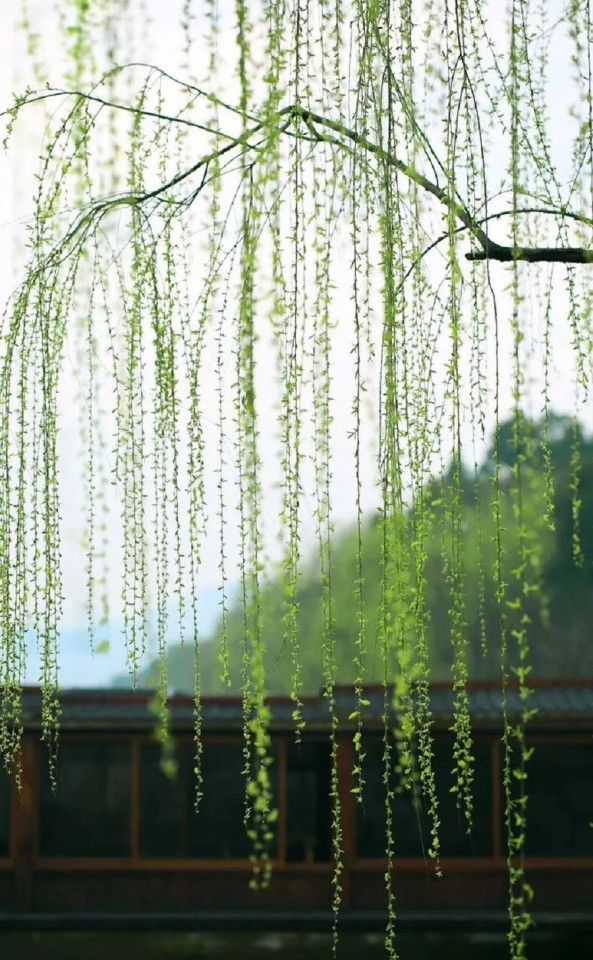My longing for the elusive fish of spring
Cultural historian Cheng Pei-kai was looking forward to sampling seasonal dishes during his recent visit to Hangzhou. Alas, not all restaurants are well prepared enough to serve up every seasonal dish a diner desires. Better luck next time.

It was just before the Qingming Festival in the first week of April when I arrived in Hangzhou. I stayed at Qingbo Gate right by the "Listening to Orioles Singing in the Willows" (柳浪闻莺) imperial garden, a scenic landmark among the top "ten scenes of West Lake".
In early spring, willow buds sprout and tendrils of young green leaves cascade down like green waterfalls that go on for miles. No wonder Chinese painter Fu Baoshi painted willow trees with such broad brush strokes in his later years - with a giant blob of pale green ink and the freehand technique, he brought to life the pure joy of the willow's resurrection and the natural state of the earth coming back to life in spring.
The return of spring awakens all living things, colouring the earth with shades so faint and delicate that people admire them gingerly for fear of crushing the innocence of early spring with their intense gaze.
In the light of dawn, the lake looks greyish blue while the distant mountains are shrouded in fog. Xiaoyingzhou (小瀛洲, an island on West Lake) looks like a blurry furball of a grey kitten, playing in the middle of the lake. The greenery around the "Listening to Orioles Singing in the Willows" imperial garden truly brings endless vitality to West Lake in early spring.

My friend invited me for a spot of first flush tea. He lamented that the weather has been erratic lately with one cold spell after another. The temperature continued to drop between Jingzhe (惊蛰) and Qingming, destroying the tender buds that had just begun to sprout. The year's crop of Mingqian tea (明前茶, tea harvested before Qingming) was almost annihilated. What was left became the extremely precious tea leaves that tea farmers quickly harvested over the past few days when the weather started to warm up.
I looked at the floating tea leaves in my cup - flat, smooth and just a little darker than new willow buds. I inhaled the fresh aroma from the steam and took a sip. Ah, that light fragrance immediately rushed from my mouth to my head. I wasn't sure if it was psychological, but I suddenly felt enlightened.
Tea drinking was very popular in the temples during the Tang and Song dynasties and the monk Zhaozhou (赵州) would often ask everyone to "go drink tea". Perhaps it was also to help people attain the spiritual enlightenment that comes from drinking tea?
It was a bit like waiting for the Academy Awards Best Picture announcement at the end of the night - one has to be patient and get through the minor awards first. With patience, I would be rewarded with the best spring dishes.
Dishes for every season, not?
Sipping my friend's Mingqian tea whetted my appetite for some seasonal spring dishes. Dark sleeper fish (步鱼) with spring bamboo shoots immediately came to mind, because both the fish and the bamboo shoots are only available in spring. To my delight, this dish was part of the "Chef's Recommendation" menu, and I ordered it immediately. We also ordered wild black fungus salad, broad beans drizzled with oil, stir-fried Indian aster, and braised tofu and potatoes.
A while later, the waiter told us that they had run out of Indian aster and the fish but were replenishing their stocks from a nearby market. So I ate the cold dish first and tried to distract myself with the braised tofu and potatoes. It was a bit like waiting for the Academy Awards Best Picture announcement at the end of the night - one has to be patient and get through the minor awards first. With patience, I would be rewarded with the best spring dishes.
Crunchy and tender, the wild black fungus was smooth and not greasy. It was very refreshing and light, and an elevated version of the common black fungus that you would soak in water. The broad beans were cooked perfectly as well - not too soft and not too hard, crunchy and a little gelatinous. The braised tofu and potatoes dish was absolutely phenomenal - braised in a master stock, the flavour of the tofu was strong and rich, making us wonder if the tofu we usually ate was synthetically made.

A little while later, the waiter updated us that they were not able to get the ingredients yet but have sent their man to a larger supermarket further away for them. I told him that I had plans in the afternoon and ordered a bowl of Pian Er Chuan (noodle soup served with preserved vegetables, sliced pork, and bamboo shoots) instead.
After I was almost done with the noodles, the waiter told us that they finally managed to get the dark sleeper fish but should they still serve it? I glanced at my watch and realised that my ride to the conference venue was arriving in five minutes. I knew I would have to give the dish a miss. "Maybe next time," I replied regretfully. The waiter fully understood my seasonal craving and said kindly, "Make a reservation the next time you come. We promise to keep a portion for you."
The next day, I was swamped with meetings and lectures and simply did not have time to go back for the dark sleeper fish with spring bamboo shoots. On the last day of my trip, I visited a museum and hit it off with the museum director immediately. He insisted on buying me lunch and brought me to dine at a very unique Hangzhou restaurant by the West Lake.
"What would you like to eat?" he asked. "Dark sleeper fish with spring bamboo shoots," I said without hesitation. Alas, the restaurant did not have it.
The museum director asked the restaurant manager impatiently, "Isn't the dish in season now?" The latter replied that they did not prepare the dish that day and suggested that we try other seasonal delights like the shad fish instead. I told the museum director that I didn't eat shad and that there was a long story behind it but I would leave that for another day.
"How about braised spring bamboo shoots?" I asked. The manager replied that the restaurant does not serve the dish because the head chef can never cook it well.
By then, the museum director got visibly upset with the restaurant staff. He turned to me and said, "Next time, you can come to my house for some excellent braised spring bamboo shoots. It seems like we'll have to settle for some pricier non-seasonal dishes today."
Related: A bowl of Suzhou noodles named by Emperor Qianlong | What does Zhuangzi have to do with goldfish in a Suzhou winter pond? | Morning call in Zhejiang: Mutton with shaojiu | Autumn musings by the West Lake | How to drink tea like an ancient Chinese | Popular in the Ming and Qing dynasties, will Songluo tea make a comeback?





![[Photos] Fact versus fiction: The portrayal of WWII anti-Japanese martyrs in Taiwan](https://cassette.sphdigital.com.sg/image/thinkchina/3494f8bd481870f7c65b881fd21a3fd733f573f23232376e39c532a2c7593cbc)